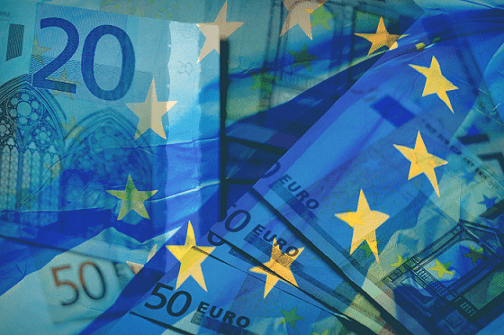The pound fell sharply against the euro in the previous session after UK inflation data disappointed investors. However, weaker than forecasted German economic growth limited the losses for the pound and prevented the exchange rate from going into freefall. The pound tumbled from the peak of €1.1047 to a session low of €1.0950.
The latest inflation figures for the UK showed that the cost of living in the UK unexpectedly held steady in July. Inflation, as measured by the consumer price index remained at 2.6%, falling short of analysts expectations of 2.7%.
Weaker than forecasted inflation data will remove some pressure from the Bank of England (BoE) to raise interest rates. The central bank has been keen to keep rates at the record low level of 0.25%, believing the increase in inflation to be temporary. However pressure had been mounting for the BoE to raise rates as inflation ticked higher. The recent easing in the cost of living will allow the central bank to defend its position of keeping rates frozen for some time yet. Following the release, expectations that BoE policymakers will hike rates decreased causing the pound to decline in value.
| Why do raised interest rates boost a currency’s value? |
|---|
| Interest rates are key to understanding exchange rate movements. Those who have large sums of money to invest want the highest return on their investments. Higher interest rate environments tend to offer higher yields. So, if the interest rate or at least the interest rate expectation of a country is relatively higher compared to another, then it attracts more foreign capital investment. Large corporations and investors need local currency to invest. More local currency used then boosts the demand of that currency, pushing the value higher. |
Today investors will look towards the UK’s latest labour market data, which includes the unemployment rate as well as the wage growth rate. Analysts anticipate that the unemployment rate will hold steady at 4.5%. Meanwhile wage growth is expected to have increased at just 1.8%, significantly below the rate of inflation. A falling wage in real terms highlights the struggle consumers are facing, which is bad news for the UK’s consumer dependent economy.
Eurozone GDP moves into the spotlight
The euro was unable to fully capitalise on the weak pound as data from Germany weighed slightly on sentiment towards the common currency. The German economy grew a better than expected 2.1% on an annualised basis. However, on a month on month basis growth unexpectedly slipped from 0.7% to 0.6%.
Even so, optimism from analysts towards the German economy remains upbeat and this will no doubt help Chancellor Angela Merkel’s position as she kicks off her re-election campaign.
Today, eurozone economic growth, as measured by the GDP, will be in focus. A stronger reading than the 2.1% forecast could strengthen the euro further, potentially pulling the pound euro exchange rate closer to parity.
| Why does strong economic data boost a country’s currency? |
|---|
| Solid economic indicators point to a strong economy. Strong economies have strong currencies because institutions look to invest in countries where growth prospects are high. These institutions require local currency to invest in the country, thus increasing demand and pushing up the money’s worth. So, when a country or region has good economic news, the value of the currency tends to rise. |
|
This article was initially published on TransferWise.com from the same author. The content at Currency Live is the sole opinion of the authors and in no way reflects the views of TransferWise Inc. |





